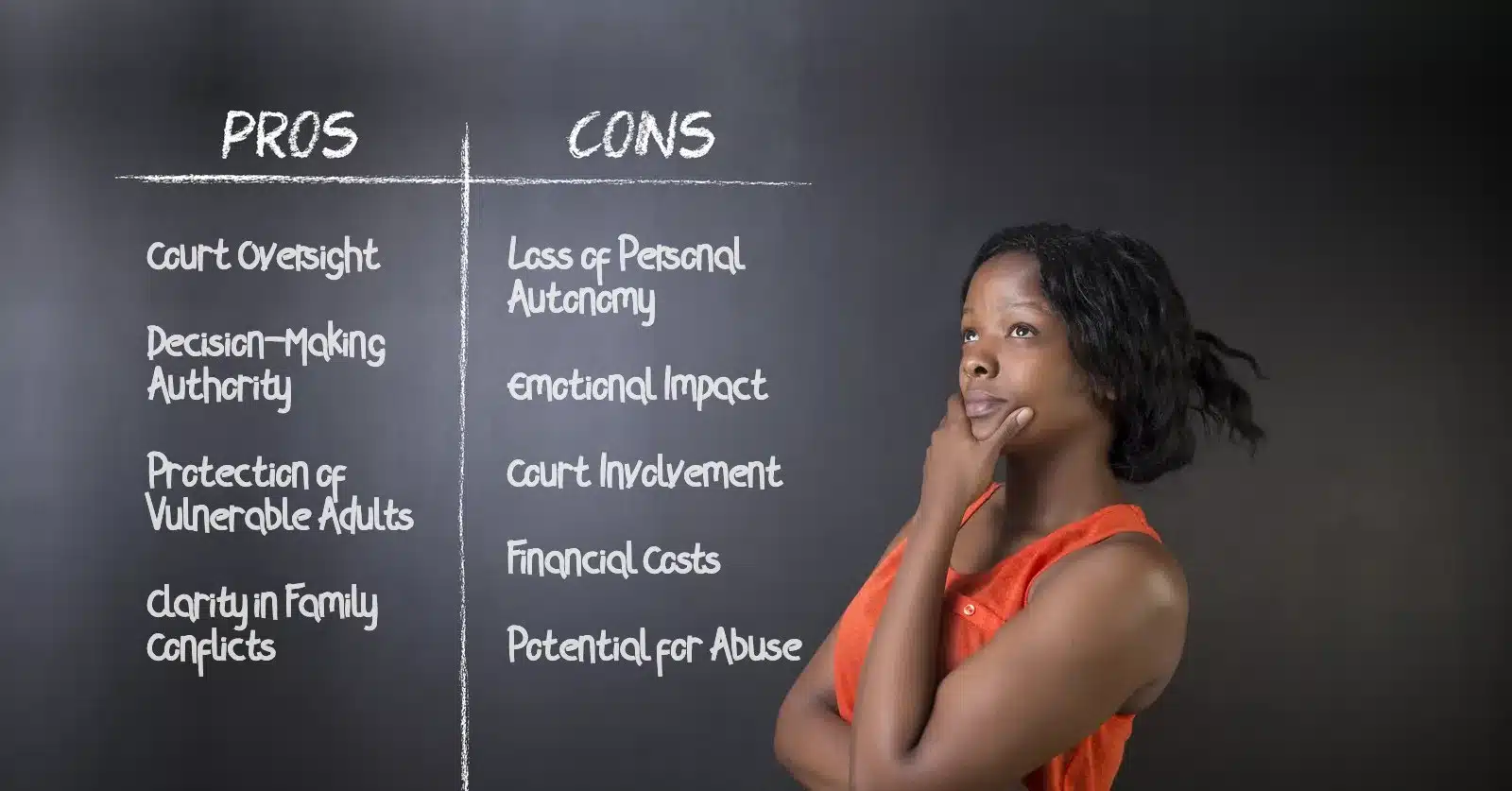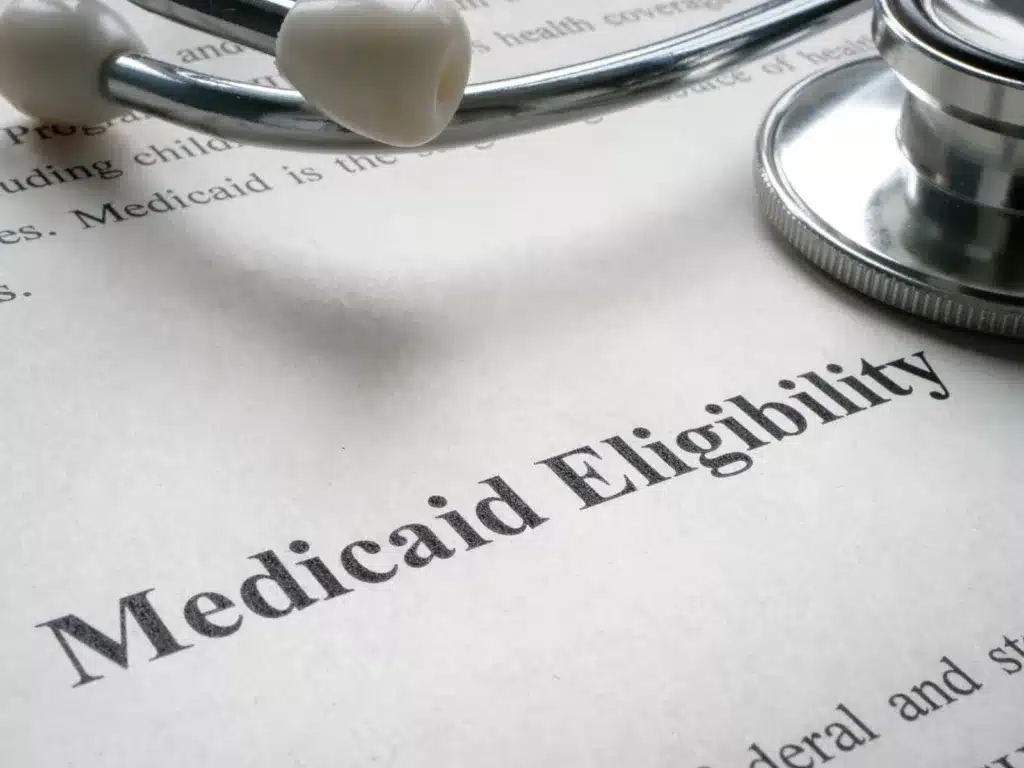What Are the Pros and Cons of Guardianship in Florida?
When a loved one becomes unable to manage their personal, financial, or medical affairs, families often turn to guardianship as a legal solution. In Florida, guardianship gives a court-appointed person (the guardian) legal authority to make decisions on behalf of someone who has been deemed incapacitated (the ward). While guardianship can be a vital tool for protecting vulnerable individuals, it’s not without serious consequences.
At RTRLAW, we help families weigh the benefits and drawbacks of getting guardianship and explore all possible options. We can help you understand what you need to know before pursuing this legal process in Florida.
What Are the Benefits of Guardianship?
Guardianship provides legal protection and a clear structure when a person is no longer capable of making safe, informed decisions. Some of the advantages include:
- Court oversight: Guardianship is supervised by the court, which adds a layer of accountability and protects against abuse or exploitation.
- Decision-making authority: Guardians can take control of healthcare, finances, and living arrangements. This is critical in emergencies or when a person resists needed care.
- Protection of vulnerable adults: Guardianship can prevent financial abuse, neglect, or manipulation by third parties or family members of disabled or legally incapacitated adults.
- Clarity in family conflicts: In cases of disagreement among relatives, the court’s appointment of a guardian can help resolve disputes and ensure consistent care.
Guardianship can offer peace of mind for families who need legal authority to step in and care for someone they love when no other support system is in place.
What Are the Disadvantages of Guardianship?
Despite its benefits, guardianship comes with significant downsides, especially for the person under guardianship, including:
- Loss of personal autonomy: The ward may lose the right to make decisions about their health, finances, relationships, and residence.
- Emotional impact: Being declared legally incapacitated can feel stigmatizing and demoralizing to the individual.
- Court involvement: Guardianship is a public, legal process that requires ongoing reporting, monitoring, and compliance.
- Financial costs: Court fees, attorney costs, and guardian expenses can add up quickly.
- Potential for abuse: Although guardians are monitored, there have been cases of neglect, mismanagement, or even financial exploitation by guardians.
Before pursuing guardianship, it’s important to weigh whether the potential harm to personal freedom and dignity is justified by the individual’s level of need.
How Much Power Does a Guardian Have?
A guardian’s authority depends on the type of guardianship granted. The level of control a guardian has over another person’s life can vary greatly depending on the court’s findings, the specific needs of the ward, and the type of guardianship granted. The two types of guardianship are:
- Plenary guardianship grants full decision-making power over both the ward’s person and property.
- Limited guardianship gives the guardian authority in only specific areas, such as finances or healthcare, depending on what the court determines the ward can no longer manage.
Guardians may be empowered to:
- Make or withhold medical decisions
- Manage bank accounts, investments, and property
- Decide where the ward will live
- Apply for public benefits on the ward’s behalf
- Approve or deny social interactions
Guardianship in Florida can be very broad and should not be pursued lightly. A court can grant sweeping authority over nearly all aspects of a person’s life.
Does Guardianship Supersede a Will?
Despite what has become common misunderstood information, guardianship does not override a valid will.
A guardian can manage a ward’s assets during their lifetime, but they cannot alter a will or redistribute the estate unless authorized by the court. However, guardianship can impact how assets are used before death and may reduce the value of the estate by the time the will is executed.
While a guardian cannot change a will, their management of assets can influence how much remains to distribute. Careful estate planning is key to protecting long-term wishes.
How Much Do You Get Paid for Guardianship in Florida?
When family or court-appointed guardians step in to manage someone’s personal or financial matters, compensation should be a practical concern, not a motive. Understanding how guardians are paid helps set appropriate expectations.
Florida law sets clear limits on compensation for guardians:
- Court-Approved Compensation: Guardians must petition the court for approval, and all fees are paid from the ward’s estate or income, not from the guardian personally.
- Annual Cap: Guardians may receive up to 5% of the ward’s annual income, taken monthly. If duties are extensive, the court can authorize additional payment beyond this limit.
Hourly Guidelines for Professionals: Judicial circuits often set standard rates. For example, professional guardians with:
- 0–5 years’ experience: ~$40–$45/hour
- 6–9 years: ~$55–$60/hour
- 10+ years: ~$70–$85/hour
Clerical support work typically earns up to $25/hour
Guardianship compensation in Florida is structured to ensure fair payment for legitimate work while protecting the ward from excessive fees. It must be court-approved and clearly justified and not a source of profit.
What Are the Ethical Issues of Guardianship?
While Florida law allows guardians to be compensated for their time and responsibilities, the issue of payment can sometimes blur the lines between care and conflict of interest. When financial gain enters the equation, it’s especially important to examine the ethical implications of guardianship, particularly when the ward still has some cognitive ability or when less restrictive options may be available.
Guardianship raises serious ethical questions, such as:
- Over-guardianship: Imposing guardianship on individuals who may need only limited support.
- Conflict of interest: When guardians stand to benefit financially from their role.
- Disrespect for autonomy: Prioritizing convenience over the ward’s preferences or dignity.
- Lack of oversight: Not all guardians are properly monitored, which can lead to abuse or neglect.
Guardianship should be viewed as a legal and ethical responsibility, not a financial opportunity. Ethical care requires respecting the ward’s rights, advocating for their well-being, and using the least restrictive means necessary to provide support.
What Rights Are Lost Under Guardianship?
In Florida, the court can remove certain rights from an individual once they are deemed incapacitated. This legal process can significantly impact the ward’s independence, making it crucial to understand exactly which rights may be taken away; which include:
- The right to vote
- The right to marry
- The right to contract or manage property
- The right to make medical decisions
- The right to determine where to live
- The right to sue or defend legal claims
Losing legal rights can have a profound emotional and social impact. It’s critical that the scope of guardianship be narrowly tailored to avoid unnecessary harm.
What Is a Better Alternative to Guardianship?
In many cases, less restrictive alternatives can provide the support a person needs without taking away their rights. These legal tools allow for assistance in managing decisions while preserving the individual’s autonomy and dignity:
- Durable Power of Attorney: Allows someone to manage finances.
- Health Care Surrogate: Designates someone to make medical decisions.
- Living Trust: Manages assets without court involvement.
- Representative Payee: Manages government benefits like Social Security.
- Supported Decision-Making Agreements: Enables collaborative decision-making without removing rights.
If a person still has some capacity, alternatives can provide protection and flexibility without resorting to full guardianship.
Let RTRLAW Help You Pursue Guardianship For the Right Reasons
Guardianship can be a necessary legal tool, but it is not always the best solution. While it offers protection and stability in certain situations, it also carries significant legal, emotional, and ethical consequences, especially for the person whose rights are removed.
At RTRLAW, we help families in Florida evaluate whether guardianship is necessary and explore less restrictive options first. If guardianship is the right path, we will ensure it’s done responsibly, compassionately, and with full legal compliance.
Call 1-833-HIRE-RTR or contact us online to schedule a free consultation. Let our experienced estate planning and probate attorneys help you protect your loved one with dignity and care.


 CALL US NOW
CALL US NOW TEXT US NOW
TEXT US NOW



























